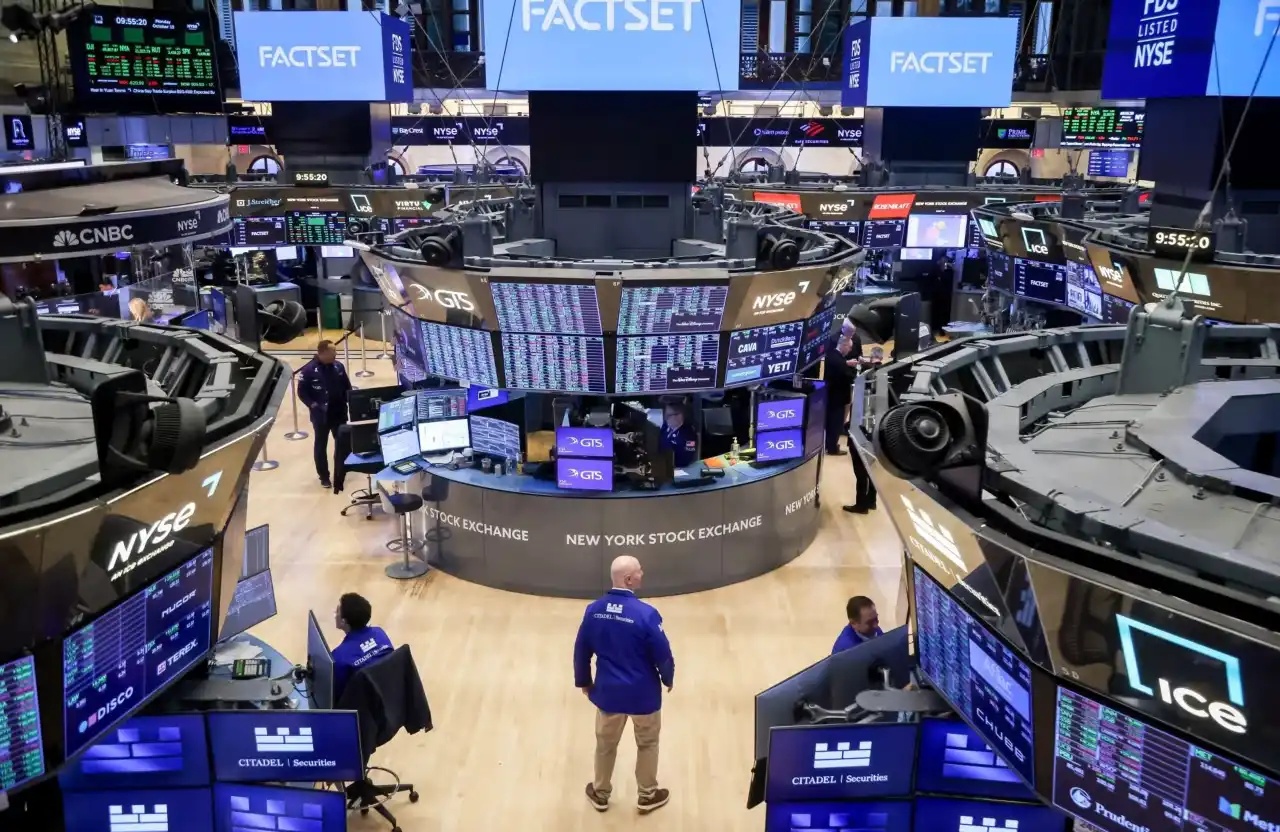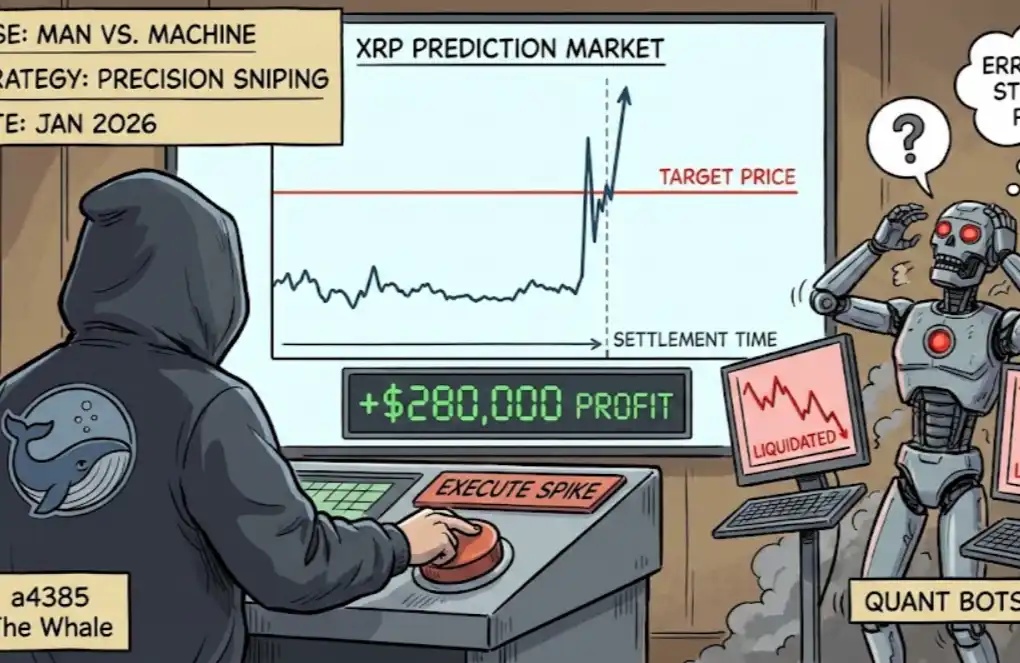「Stock On-chain」 Innovation: Galaxy Launches Native US Stock Tokens, Achieving On-chain Equivalency
Original Article Title: "Entering a New Era of On-Chain Stocks, Galaxy Launches First Native US Stock Token"
Original Article Author: Azuma, Odaily Planet Daily
The trending topic of "tokenization of US stocks" has once again evolved with a new twist.
Yesterday evening, the cryptocurrency giant Galaxy Digital (GLXY), already listed on Nasdaq, officially announced a partnership with the SEC-registered transfer agent Superstate (previously invested in by Galaxy Ventures) to tokenize GLXY's Class A common stock on the Solana blockchain. This marks the first time in history that a US-listed company has proactively attempted to tokenize its stock on a public blockchain—distinguishing itself from the current mainstream "mapping" or "wrapping" US stock tokenization schemes managed by third parties, these on-chain versions of GLXY are not "wrapped assets" but actual on-chain shares, holding the same financial and legal rights as off-chain shares.
According to Galaxy Digital, stock on-chain involves a series of complex processes such as issuance, record-keeping, custody, settlement, reporting, brokerage, and trading. Due to the lack of clear regulatory rules in the past, a few players experimenting with on-chain US stock tokenization have opted for relatively simple "mapping" or "wrapping" models, the drawback of this old model being that token holders do not actually have rights to the underlying company's stocks. To truly popularize stock on-chain, this issue must be addressed.
Implementation Mechanism
The solution proposed by Galaxy Digital is to develop a clear on-chain process and architecture that can truly tokenize existing stocks—not through mapping, not through wrapping, but directly as genuine on-chain shares.
According to disclosures from Galaxy Digital and Superstate, this collaboration is based on the latter's stock on-chain platform, Opening Bell, where users can convert GLXY's Class A common stock one-to-one into tokenized shares, with the specific process as follows:
· Complete KYC registration on Superstate (around 10 minutes registration, 2 hours verification).
· Instruct your broker to transfer stocks via the Direct Registration System (DRS) to Galaxy's transfer agent Equiniti (around 3 business days).
· Contact Equiniti to transfer shares to Superstate's "on-chain available account" (approximately 4 hours processing time).
· Superstate mints GLXY tokens at a 1:1 ratio, which are then delivered to your Solana wallet (approximately 10 minutes).
· From this point on, you are free to store, transfer, or transact with other registered users.
· If you wish to revert to the traditional form, you can reverse the above process.
Galaxy Digital explains that the above process is designed to ensure an on-chain equivalence between GLXY and Nasdaq-listed stocks. Any shareholder able to complete Superstate's compliant registration process can convert their GLXY shares into tokenized on-chain shares on Solana. If you do not currently hold GLXY shares but wish to purchase tokens on-chain, you simply need to register with Superstate and then buy on-chain GLXY tokens from existing holders.
Due to the early stage of GLXY's on-chain presence, on-chain liquidity is currently not sufficiently scaled, making the current on-chain process relatively cumbersome. However, in the future, as on-chain liquidity gradually accumulates, most users will not need to personally engage in this cumbersome process.
Additionally, Galaxy Digital further adds that due to unclear regulatory rules related to DEX, the company currently does not support these stock tokens to trade on Solana via automated market makers (AMM) or other fully decentralized exchange mechanisms. The company's plan is to gradually expand the trading venues as the U.S. regulatory bodies provide clearer guidance, eventually enabling tokenized shares to trade directly on AMMs and DEXs—meaning that until a more mature and transparent secondary market emerges, on-chain GLXY does not guarantee liquidity, but bilateral trading between wallet addresses registered with Superstate is still possible.
Potential Risks
According to Galaxy Digital's proactive disclosure, the on-chain version of GLXY may be subject to the following three potential risks.
The first risk is wallet theft or loss. GLXY token holders may lose access to their wallets, but if the key is lost, Superstate can reissue the tokens to a new wallet controlled by the shareholder—since Superstate tracks the on-chain flow of all tokenized GLXY among shareholders, and all shareholder identities are known to Superstate, irrecoverable tokens can be burned and reissued to the shareholder's new wallet. It is important to note that while GLXY stock tokens can be recovered in the event of wallet key loss, other assets in the wallet remain irrecoverable.
The second risk is the price difference between tokenized GLXY and traditional GLXY stock. The price of traditional GLXY stock may deviate from the price of tokenized GLXY. The current on-chain stock market is still in its early stages, and even if future AMM trading is enabled, there is no guarantee that tokenized GLXY will have sufficient and orderly market liquidity or price discovery, which may lead to liquidity dispersion, price discovery issues, wider bid-ask spreads, and long-term price divergence between tokenized GLXY and traditional GLXY, especially when arbitrage is constrained by operational or regulatory limitations. The core method to promote price convergence between different markets is to establish a convenient two-way exchange bridge. Galaxy Digital has already built this bridge, allowing on-chain tokens to be exchanged one-to-one with off-chain stocks. However, the use of this bridge may still take time to normalize, so arbitrage mechanisms may still face obstacles in the short term.
The third risk is regulatory uncertainty. The SEC may still not allow Galaxy Digital to tokenize common shares in this way, although Galaxy Digital believes that this tokenization process is elegantly designed and can comply with existing securities regulations, it is not ruled out that the SEC may reach a different conclusion. If regulatory authorities determine that the platforms, mechanisms, or participants involved in secondary market trading of tokenized GLXY do not meet legal requirements, Galaxy Digital or market participants may face enforcement actions, fines, or be required to revoke or restructure certain parts of the project. If Galaxy is required to halt its on-chain equity plan, Superstate can suspend the token contract, recall all tokenized shares, and work with on-chain shareholders to convert them back to traditional shares before delivering them back to the traditional market system. This process may take a long time, and shareholders may find it difficult to trade during the process.
Analysis and Outlook
Overall, the solution proposed by Galaxy Digital in collaboration with its investment target Superstate is primarily focused on providing a clearer on-chain process and structure compared to other third-party US stock tokenization service providers. Moreover, as the issuing entity, Galaxy Digital can clearly define the rights status of the issued tokens, which has a certain positive significance in addressing the mismatch between traditional "wrapped" US stock tokens and real stocks' rights.
Galaxy Digital believes that "token rights equal stock rights" is a prerequisite for the widespread adoption of stock tokenization, a point with which we strongly agree. We tend to believe that Galaxy Digital's solution can address this issue at the issuance end. However, the bigger issue lies in the circulation end—currently, only registered users of Superstate can hold GLXY tokens, and GLXY does not currently support trading between DEXs; it can only be traded bilaterally between registered Superstate users. Even in the future, if DEX support is introduced, the liquidity situation remains unknown. Compared to the complete experience provided by the traditional securities trading system, such limitations will hinder users from migrating to the blockchain.
The resolution of the "same rights issue" can only break down the psychological barriers before user entry. However, to truly attract and retain users, there is still much work to be done in continuously optimizing liquidity and experience.
Welcome to join the official BlockBeats community:
Telegram Subscription Group: https://t.me/theblockbeats
Telegram Discussion Group: https://t.me/BlockBeats_App
Official Twitter Account: https://twitter.com/BlockBeatsAsia











